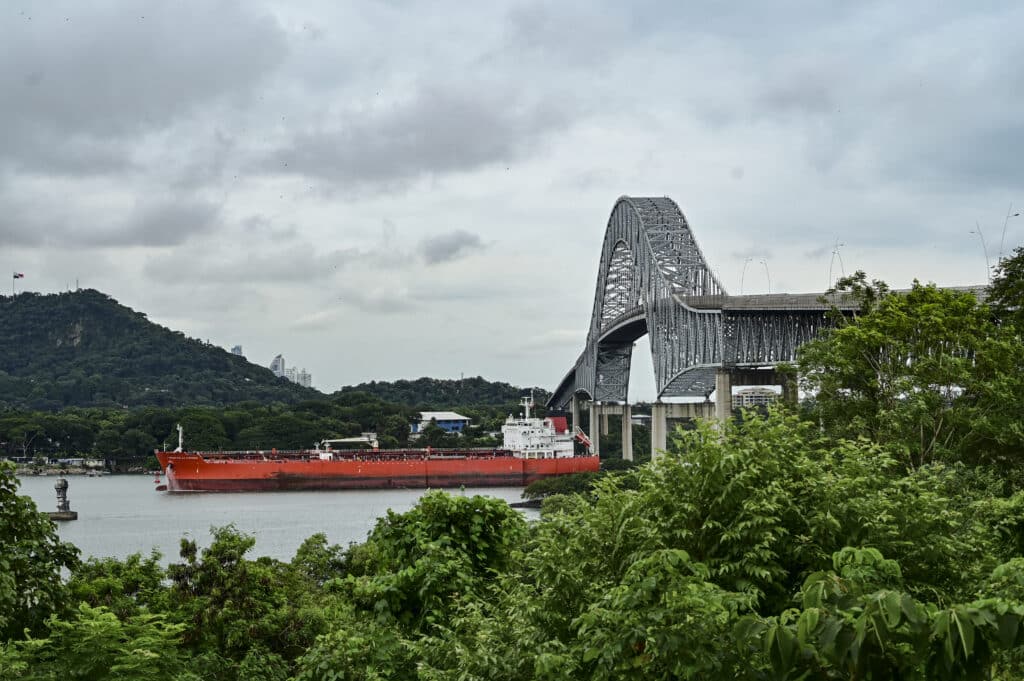
A tanker ship enters the Panama Canal from the Pacific side on October 25, 2024. – The Panama Canal earned record revenues of just under $5 billion last year despite a reduction in ship traffic due to a drought, the waterway announced October 25. (Photo by MARTIN BERNETTI / AFP)
Washington, United States — Granting Donald Trump’s demand for US ships passing through the Panama Canal to get preferential treatment would “lead to chaos,” the head of the authority running the waterway said Wednesday.
“Rules are rules and there are no exceptions,” Panama Canal Authority leader Ricuarte Vasquez Morales told the Wall Street Journal.
“We cannot discriminate for the Chinese, or the Americans, or anyone else,” he said in an interview with the US financial daily. “This will violate the neutrality treaty, international law and it will lead to chaos.”
READ: Panama rejects Trump’s threat to take control of Canal
The United States built, owned and operated the Central American canal until US president Jimmy Carter struck a deal in the 1970s to gradually hand over control of the vital waterway to the Panamanian authorities.
US President-elect Trump has taken to speaking out against the deal, refusing on Tuesday to rule out using military action to take it.
The Republican has also threatened to seize Greenland, and to use “economic force” against neighboring Canada.
One of Trump’s fiercest criticisms of the Panama Canal is that it is effectively controlled by China — an accusation Vasquez Morales said was “unfounded.”
“China has no involvement whatsoever in our operations,” he told the Wall Street Journal.
While a Chinese company operates two ports on either end of the canal, the canal itself is run by the Panama Canal Authority.
Vasquez Morales insisted that the Panama Canal Authority does not charge US ships higher rates than anyone else.
The only exception to its rules, he added, was that US Navy vessels get priority treatment as part of the agreement struck in the 1970s, allowing them to swiftly travel between the Atlantic and Pacific Oceans.

